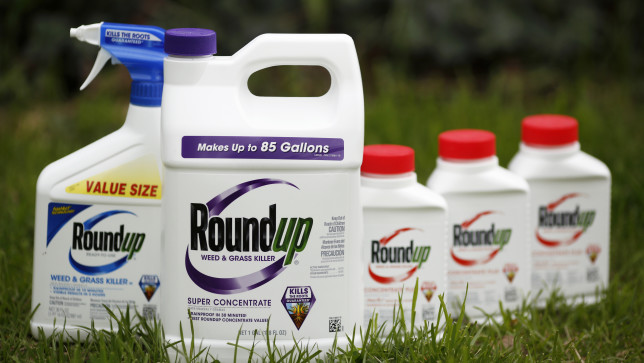Scientists from four national environmental-health organizations today called on the scientific journal Critical Reviews in Toxicology to retract a review downplaying glyphosate’s cancer risk because the review article was covertly edited and funded by Monsanto, the pesticide’s maker.

As detailed in a recent news report, the article’s conflict-of-interest disclosure stated that a third party hired by Monsanto was independently overseeing the assessment of the popular pesticide. However, Monsanto directlypaid at least two of the scientists who authored the article, and a Monsanto employee substantially edited and reviewed the article prior to publication, in clear contradiction to the disclosure statement.
Today’s letter from scientists at the Center for Biological Diversity, Center for Food Safety, Pesticide Action Network and Center for Environmental Health noted: “These are serious offenses and if left unanswered will ultimately undermine the work of many scientists who view scientific ethics to be sacrosanct.”
The review paper in question was one of a series of five articles published in a 2016 supplemental issue entitled “An Independent Review of the Carcinogenic Potential of Glyphosate.” The review in question was an overview of the four other articles. All five articles were highly critical of the 2015 finding by the World Health Organization’s International Agency for Research on Cancer that glyphosate, the main ingredient in Roundup, is a probable human carcinogen.
“This was a deceitful effort by Monsanto to cast doubt on the WHO’s finding that glyphosate is a likely carcinogen,” said Nathan Donley, a senior scientist with the Center for Biological Diversity. “If the journal fails to retract this study, it will be publically condoning this unethical behavior. To understand pesticides’ threats to people and the environment, we’ve got to know if research is truly independent from industry influence.”
“This shameful episode reveals once again that Monsanto is a fundamentally unethical corporation that does not deserve the trust of scientists or the broader public,” said Bill Freese, science policy analyst at the Center for Food Safety. “Critical Reviews in Toxicology must stand up for scientific integrity and retract this paper in light of this serious misconduct.”
Today’s retraction-request letter highlights a range of failures involved in the review article:
- Failure to disclose that at least two panelists who authored the review worked as consultants for, and were directly paid by, Monsanto for their work on the paper.
- Failure to disclose that at least one Monsanto employee extensively edited the manuscript and was adamant about retaining inflammatory language critical of the IARC assessment — against some of the authors’ wishes. The disclosure falsely stated that no Monsanto employee reviewed the manuscript.
- In today’s letter the scientists stated that the readers and reviewers of the cancer studies were led to believe “that Monsanto had no influence on the content of the reviews other than indirectly funding the work through an ‘independent’ third party. This is false, and the scientific community and public were misled.”
In addition to asking for a retraction of one of the five review articles, the scientists have called for an in-depth investigation into the other four articles published in this issue. Multiple internal emails from Monsanto indicated the pesticide maker’s willingness to ghostwrite or compile information for the authors of the reviews, dictate the scope of one of the reviews, and identify which scientists to engage or list as authors of the reviews.
“Since Rachel Carson’s Silent Spring, Monsanto has attacked independent scientists whose work accurately reveals health risks associated with its products,” said Donley. “This latest, devious manipulation of scientific research suggests Monsanto will do whatever it takes to try to divert the public’s gaze from the growing evidence highlighting pesticide dangers.”
Today’s retraction/investigation request was sent to the journal’s editor-in-chief, the managing editor at Taylor and Francis — the journal’s publisher — and the Committee on Publication Ethics (COPE), of which Taylor and Francis and Critical Reviews in Toxicology are both members.


















This is Monsanto’s Friday the 13TH.
I am so thankful for these superior scientists who are speaking out against the insanity, corruption, and lies.
Bayer/Monsanto are totally corrupt. They have no interest in the public health (Neither did Bayer when it worked for Hitler during WW II to make the nerve gas that was used to kill Jews in showers). Money, power and prestige are more important than principle, truth, compassion. Neither the human population nor the environment is considered when they get in the way of prophets. Blame your government also. Through its wealth made off the carcasses of human beings and ecology, Bayer/Monsanto has corrupted its way into influential governmental positions that control the environment and human health. Your government, from the White House to the State House, is totally corrupt. How else can one explain the massive influence of Big Business over the voting public? Big Business, like Bayer/Monsanto, have been busy since the early 1900’s building a monopoly of crime that influences all levels of government so that their greed cannot be hindered. Honest people are not wanted in Washington. Be in fear. You have lost control..
profits